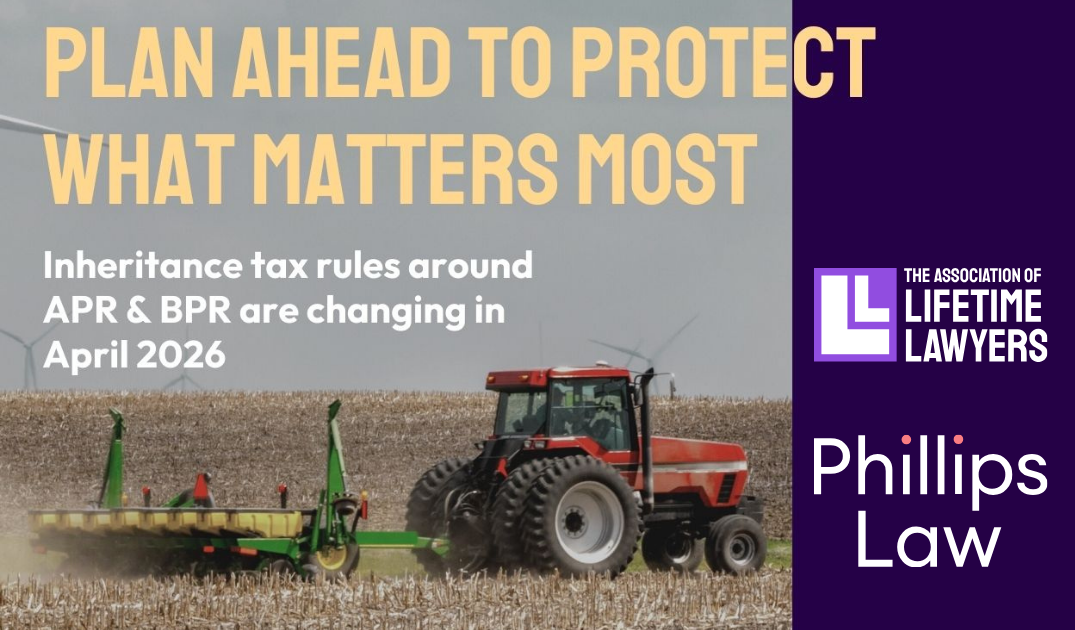
20 May 2025
There has been a lot of press coverage recently following the untimely death of One Direction singer, Liam Payne, and the issue of the Grant of Representation in his estate. According to press reports, the former One Direction singer died without leaving a Will. As such his estate falls to be distributed under the Rules of Intestacy.
Liam was not married but left behind a child, his son, Bear, who is currently only 8 years old. Under the Rules of Intestacy, Bear is set to inherit his father’s entire estate. For many parents, the idea of a young child inheriting outright raises important concerns.
In this article, Sian Lias explores how the law deals with inheritance by minors when there is no Will in place, and what parents should know to avoid unintended consequences.
What Happens When a Parent Dies Without a Will?
If someone dies without a valid Will, their estate is distributed according to the Rules of Intestacy. These rules set out a strict order of entitlement and do not consider the deceased’s personal wishes or family dynamics. The rules are as set out in the Administration of Estates Act 1925 and govern the administration of intestate estates.
In Liam Payne’s case, he had one child and no surviving spouse. Under the intestacy rules in England and Wales, this means his entire estate passes to his son. Given Bear is a minor (under the age of 18) he cannot legally hold the monies himself. Instead the monies will be held on his behalf by the Administrators of the estate.
Trusts for Minors under the Rules of Intestacy
When a child inherits under intestacy, the law creates a statutory trust. The inheritance is held by trustees until the child turns 18. The trustees are normally the child’s surviving parent (if they have one) alongside another appointed adult. In Bear’s case, his mother, Cheryl Tweedy, and music lawyer, Richard Bray, have been appointed as the Administrators of Liam’s estate and will hold the funds on trust.
Under the trust the capital is held until the child reaches 18 (or marries earlier). Any income generated can be used by the trustees for the child’s education, maintenance, or benefit, but must be applied with care. Trustees can accumulate income that’s not needed right away and add it to capital.
Crucially, the child inherits absolutely at 18.
Without making a Court application, the trustees cannot delay this, even if they feel the child isn’t ready to handle the money. This lack of flexibility can be problematic, especially for significant or complex estates.
Trustees may apply to court to extend the age under the Variation of Trusts Act 1958.
Complications for Intestacy
Following these statutory provisions, a child will inherit the estate when they reach the age of 18. Complications can arise if the child dies under the age of 18.
Identifying who inherits now all depends on who was alive at the date of the death of the deceased.
If the minor child had children at the time, the estate would be held for those children under the same contingency. If there were no children the estate would be distributed based on who was next entitled under the Rules of Intestacy at the time the deceased passed away. In Liam’s case, his estate would pass to his parents as they were next in line as beneficiaries when Liam died.
Complications arise where beneficiaries were living at the date of death of the deceased but die before the minor child. If a parent of the deceased dies after them but before the minor child, their share of the deceased’s estate will pass into their own estate.
Avoiding the Rules of Intestacy
The simplest and most effective way to protect your children and your estate is to make a valid Will. A professionally drafted Will allows you to consider the following, especially where you have minor children:-
- Appoint guardians to care for your children;
- Choose trustees to manage monies and other assets on behalf of your children;
- Set an age of inheritance later than 18 (e.g. 21 or 25);
- Consider an alternative provision if your children died before you, or before reaching the age included in the Will.
By contrast, dying intestate means losing control. No matter the size of your estate or the complexities, the default Rules of Intestacy will govern your estate if you do not have a valid Will at the time of your death.
When was the last time you considered the distribution of your estate? If you would like to discuss your estate with an expert, please contact our Wills, Trusts and Probate team who would be delighted to assist you.
Email: [email protected]
Phone: 01256 460830
Contact Us
Please call us or email and we’ll get back to you as soon as possible.

We are delighted to announce that Phillips Law is the regional sponsor of the Knight Frank Schools Triathlon, supporting both the Charterhouse and Marlborough events. The Schools Triath ...
More
What farming families and business owners need to know If you own a farm, land, or a family business, you will have undoubtedly heard that inheritance tax (IHT) rules are changing. Whil ...
More
We are about to see a great wave of Employment Law changes following the Employment Rights Act 2025 becoming law in December. We will use these updates to keep you abreast of the change ...
More
As we look back on a busy and notable January at Phillips Law, we wanted to share a round-up of recent milestones, insights, and community moments from across the firm. Phillips Law cel ...
More
A guide to share incentivisation for employers and an update on the new employment rights. We have created a morning of practical insight that focuses on how you can reward and retain y ...
More
We are proud to announce Victoria’s Promise as Phillips Law’s Charity of the Year for 2026. Victoria’s Promise is a local charity providing dedicated support to young women aged 25 to 5 ...
More